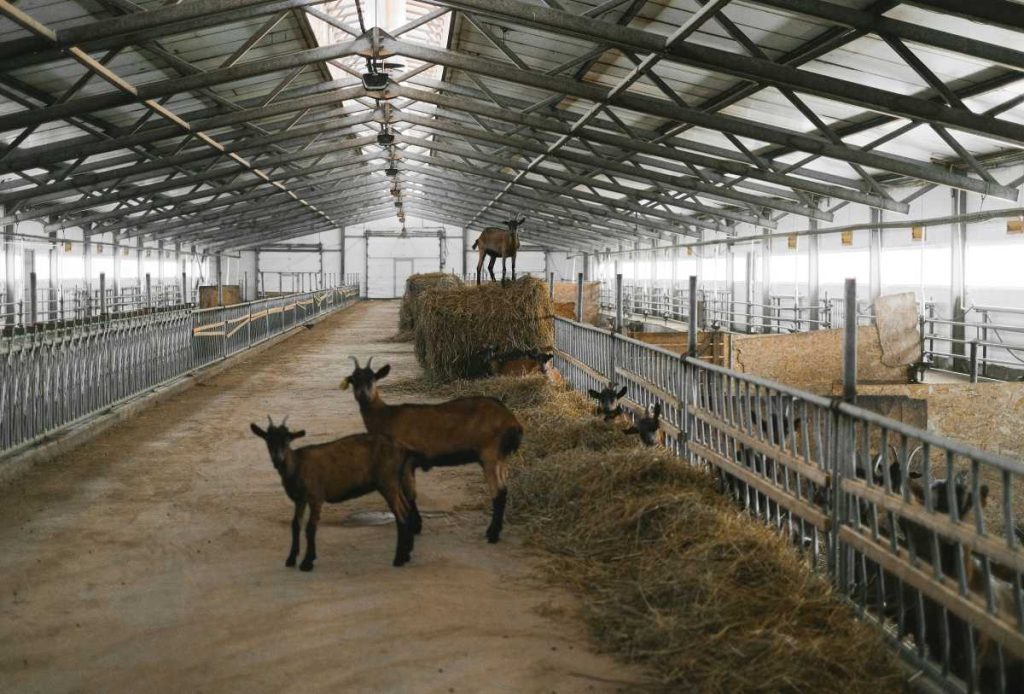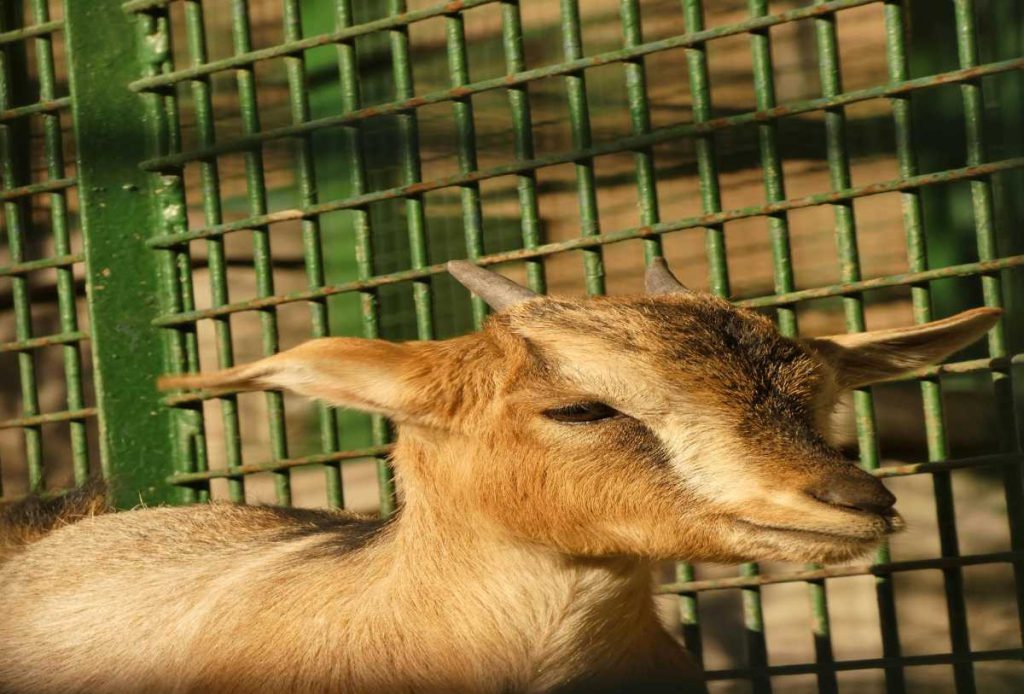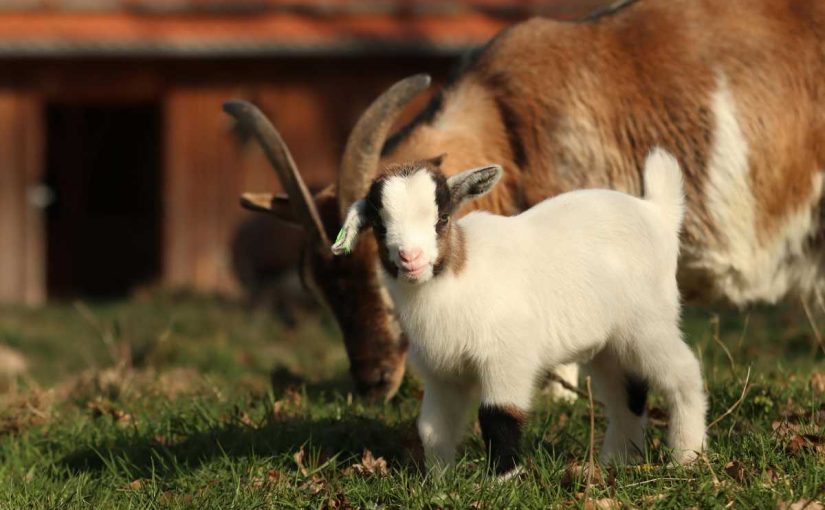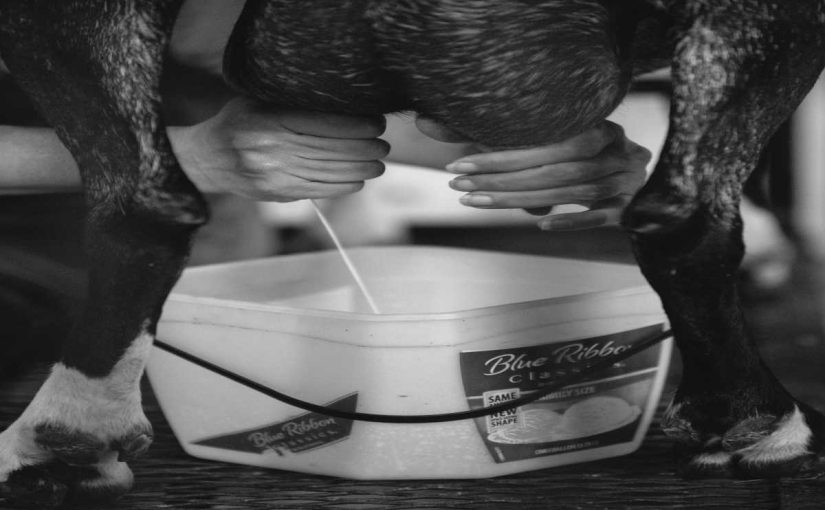Goats are a valuable investment for any homestead, but they can also be a target for predators. Whether it’s coyotes, foxes, or even stray dogs, a predator attack can result in the loss of livestock, emotional stress, and financial setbacks. Ensuring your goat enclosure is properly fortified is the best way to safeguard your herd. In this blog, we’ll walk you through eight essential steps to predator-proof your goat enclosure and keep your goats safe.
1. Build a Sturdy, Tall Fence
A solid fence is the first line of defense against predators. Goats are curious and will attempt to squeeze through or jump over weak barriers, so it’s essential to build a fence that’s both tall and strong.
Fence Specifications:
- Height: Aim for a fence that’s at least 4-5 feet tall, but taller fences (up to 6 feet) are even better for goats that are jumpers.
- Material: Use heavy-duty wire fencing like woven wire or welded wire with small openings (no larger than 2 inches by 4 inches).
- Placement: Install the fence deep enough into the ground (at least 6-12 inches) to prevent digging predators like foxes or raccoons from burrowing under it.
Tip: Consider using a combination of electric wire at the top and bottom of the fence to deter jumping and digging.
2. Secure Gates and Latches
Predators can exploit weak or improperly secured gates. Ensure that all gates have secure latches that can’t be easily opened by animals or the wind.
Gate Specifications:
- Use heavy-duty latches that are predator-proof, such as spring-loaded or bolt-style latches.
- Make sure gates are always securely closed and never left ajar.
- If using a sliding gate, ensure it is properly secured so that predators cannot slip through gaps.
Tip: Regularly inspect gates for signs of wear and tear and replace any that are showing signs of weakness.
3. Install an Electric Fence or Wire
Electric fences provide an additional deterrent for both large and small predators. The shock from an electric fence is enough to discourage most predators from approaching the enclosure.
Electric Fence Tips:
- Run a low-voltage electric fence along the bottom and top of the goat enclosure.
- Use an energizer with enough power to deter predators. Look for energizers rated for livestock and predator control.
- Install the electric fence wires at different heights—one near the ground to stop digging and one above to deter jumping.
Tip: Make sure the electric fence is well-maintained. Check regularly to ensure that the power is consistent and that there are no shorts or damaged wires.
4. Protect Your Enclosure with Predator-Resistant Roofs
While a fence can keep predators out from the sides, they can still try to attack from above. Birds of prey, like hawks, or larger predators like coyotes, can easily access a goat enclosure if there’s no protection from above.
Roofing Options:
- Install a secure, predator-resistant roof over your goat enclosure. This could be as simple as adding wire mesh or netting overhead.
- Consider using corrugated steel or heavy-duty wire panels for an extra layer of protection.
- Ensure that any roof mesh or netting is securely fastened to prevent animals from tearing it down.
Tip: Make sure the roof is high enough to provide ventilation while still offering protection from aerial predators.

5. Maintain a Clean and Tidy Enclosure
Predators are often attracted to the scent of food, waste, or sick animals. By maintaining a clean enclosure, you minimize the chances of attracting unwanted predators.
Cleaning Tips:
- Regularly remove waste from the goat pen to avoid attracting scavengers like raccoons and rodents.
- Store feed in sealed, animal-proof containers to keep it from being accessed by pests.
- Ensure that water troughs are clean and free from contaminants.
Tip: Regular cleaning and removing leftover food at night can help deter predators that may be looking for an easy meal.
6. Use Livestock Guardian Animals
Livestock guardian animals (LGAs) like dogs, donkeys, and llamas can offer an extra layer of protection for your goats. These animals are highly effective at deterring predators and keeping your herd safe.
LGA Options:
- Guardian Dogs: Breeds like Great Pyrenees, Anatolian Shepherds, and Maremma Sheepdogs are known for their protective instincts.
- Donkeys: Donkeys, especially jennies (female donkeys), can be excellent protectors and will often chase off predators.
- Llamas: Llamas are territorial and will protect your goats from smaller predators, such as foxes and coyotes.
Tip: Introduce the guardian animal gradually to your goats, ensuring they bond with the herd before being left alone with them.
7. Create a Secure Nighttime Shelter
Goats are more vulnerable at night when they’re less active and their vision is limited. Providing a secure nighttime shelter keeps them safe from nocturnal predators like coyotes and wild dogs.
Shelter Tips:
- Provide an enclosed, predator-proof barn or shed where goats can sleep at night.
- Ensure the shelter has secure walls and doors, and that there are no gaps where predators could sneak in.
- If your goats will be outside at night, make sure they’re in an area with a high fence and extra security measures.
Tip: Lock up your goats at night to minimize the chances of a predator attack while they are vulnerable.
8. Regularly Inspect and Maintain Your Enclosure
Predator-proofing your goat enclosure is an ongoing process. It’s crucial to regularly inspect and maintain your enclosure to ensure it remains secure and effective in keeping out predators.
Maintenance Checklist:
- Check for any damage to the fencing, gates, or roof regularly.
- Inspect electric fences to ensure the power is functioning and wires are intact.
- Repair any holes, weak spots, or signs of digging immediately.
Tip: Conduct weekly or bi-weekly checks, especially after storms or periods of heavy use.
Conclusion
Protecting your goats from predators is essential to their well-being and your peace of mind. By following these eight foolproof steps—building a sturdy fence, securing gates, adding an electric fence, using guardian animals, providing a secure nighttime shelter, and maintaining the enclosure—you can create a safe environment for your goats. Regular inspections and maintenance are key to ensuring long-term protection. A predator-proofed enclosure will give you confidence that your goats are safe and secure, day and night.




